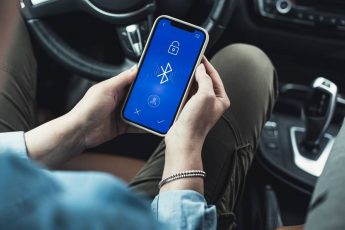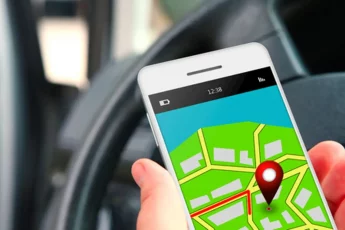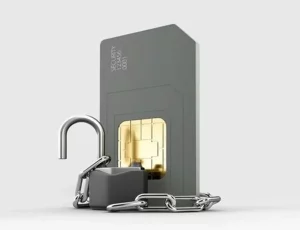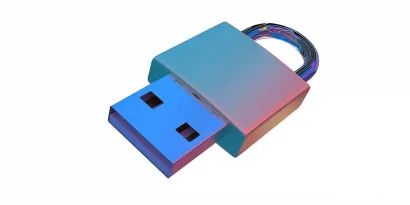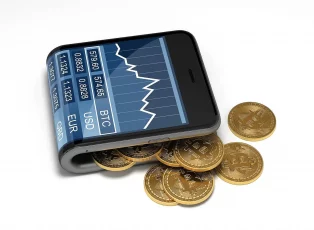Signal and WhatsApp are the two most popular messaging apps people use daily to exchange messages, photos, and links. They both use end-to-end encryption technology that encodes the sender’s message so that only the intended receiver can decipher it. It helps prevent third parties, including app developers, from reading your messages. But if both of them are similar, why does the battle of Signal vs. WhatsApp go on?
There are numerous claims that Signal is more secure and private than WhatsApp. Is this true? This detailed comparison of the Signal app and WhatsApp messenger lays out more.
Signal vs. WhatsApp compared at a glance
The first thing you consider when choosing an instant messaging app is the features it offers. Although Signal and WhatsApp have numerous similar security features, there are a few differences.
| Feature | Signal | |
| Monthly users | 40 million | 2 billion |
| Parent company | Signal Foundation | Meta Platforms, Inc. |
| Data Sharing | 🗶 | ✔ |
| Validation of encryption/ user ID | ✔ | ✔ (limited) |
| End-to-end encryption | ✔ | ✔ |
| Message notification shielding | ✔ | ✔ (limited) |
| Screen lock | ✔ | ✔ |
| Disappearing message feature | ✔ | ✔ (limited) |
| Call relay to disguise the IP address | ✔ | 🗶 |
What is Signal app?
Signal is a free secure messaging app that focuses on privacy and has many features. It has apps for Android and iOS and clients for macOS, Windows, and Linux, and you only need a phone number to get started.
The user experience is similar to other popular messaging apps like WhatsApp, with features like one-to-one messages, groups, stickers, voice and video calls, file transfers, and photos. In addition, it allows you to have a group chat of up to 1000 people and group calls of 8 people.
Signal is a product of a non-profit organization that is entirely funded by grants and donations. Unlike other messaging apps like WhatsApp, Signal owners are not trying to make money with the service. So, don’t expect to get ads, affiliate links, or tracking. Also, it is not associated with any major tech company, so sharing data won’t be an issue.
Furthermore, Signal is built on open-source software, which means anyone can scrutinize the source code to check for vulnerabilities.
What is WhatsApp?
Introduced in 2009, WhatsApp is a free communication app that allows you to send messages, make voice and video calls and share status. One of the reasons the service is more appealing is the cross-platform functionality letting you use it on various phones and computer operating systems. As a result, you can use the service anytime and anywhere.
Like Signal, WhatsApp also uses end-to-end encryption and does not show ads. Also, business accounts have added features. But unfortunately, it is owned by Meta, which raises privacy concerns.
Signal vs. WhatsApp – Which is bigger?
WhatsApp has a massive user base with over 2 billion monthly active users. Therefore, it is more likely that most of your contacts are already using WhatsApp. Hence, it is much easier to adopt and chat with friends and family than to convince them to install another messaging app.
On the other hand, Signal has over 40 million monthly active users. It is mainly used by privacy-focused people like activists, journalists, cybersecurity experts, governments, and personalities like Elon Musk and Jack Dorsey.
WhatsApp is a winner in this category!
Signal vs. WhatsApp – Which has more features?
Signal and WhatsApp allow you to send text or voice messages, files, photos, contacts, and locations and make voice and video calls using cellular and Wi-Fi data.
Also, you can add GIFs and stickers to chats and customize their appearance with themes, wallpaper, and chat colors.
Both services have a tie in this regard.
Is Signal secure? Key security features
1. Data encryption
As mentioned earlier, Signal uses end-to-end encryption for all messages, one of the few instant messaging apps that provide this security level.
2. Safety number
Signal has recently added a security layer known as safety numbers. This unique number on each one-to-one chat lets you verify the security of your messages and calls. It is a good security measure for sensitive communication.
How to verify a Signal chat on Android or iOS:
- Open the contact you want to verify.
- Tap on the chat header.
- Select “View safety number.”
- A screen with a QR code and a series of numbers will appear.
- Authenticate the data with your contact and then tap on the “Mark as Verified” button.
You can tap on the “Tap to scan” option below the QR code for QR authentication. Your device will prompt you to scan the QR code on the other contact’s device. But this procedure requires the other individual to be physically present near you. So, when that’s not possible, you only have to proceed with the authentication via the serial number. Here is how you do it:
- Ask the contact to confirm the security numbers verbally.
- Request the contact to send you a screenshot of their security number through an alternative channel.
When the contact is verified, a checkmark and the word “Verified” appear below the name in the chat header. Signal will automatically notify you once the contact’s safety number changes. The change can occur when the contact re-installs Signal or gets a new phone. However, this can also happen because of a man-in-the-middle attack.
Conversely, WhatsApp has a similar “Verify Security Code” feature. However, a verified status won’t be added to contacts after you verify the codes. Also, you won’t be notified if the contact’s security code changes unless you manually activate the notification feature in the settings.
3. Screen Lock
Signal has an option to turn on the screen lock. So, every time you open Signal, you will be required to enter a passphrase, pin, or biometric authentication (fingerprint, FaceID or TouchID) to open.
However, this feature is unavailable on the Signal desktop client. Instead, you can only use it on your mobile device, but you will have to enable the screen lock on your device first.
How to enable Signal screen lock on your Android and iOS phones:
- First, tap your user image on the upper left corner of Signal’s home screen.
- Next, tap on “Privacy.”
- Scroll down to find “Screen lock” and turn it on.
- Tap on “Screen lock inactivity timeout” (Android) or “Screen Lock Timeout” (iOS). Android allows you to set a custom timeout duration; on iOS, you can select between instant or 1 minute to 1 hour.
On the other hand, WhatsApp has a similar feature but with fewer interval options.
4. Message notifications
If you use your phone in the presence of third parties, the notifications appearing on the screen can be problematic, especially if your value your privacy. Thankfully, Signal gives you an option to modify how you receive notifications.
How to change Signal message notifications on Android or iOS:
- Open Signal and tap on the user image in the upper left corner.
- Select “Notifications.”
- Under “Messages” (Android) or “Notification Content” (iOS), click “Show.”
- Choose how you want the Signal notifications to appear. For example, if you choose “No Name or message,” you will get generic signal notifications every time a message comes in.
On the other hand, WhatsApp also allows you to customize your locked screen message notifications. However, you can only turn on/off previews of notifications at the top of the screen. Moreover, there is no way to conceal the sender’s name.
5. Call relay option
This feature gets you covered if you don’t want your IP address tracked when using Signal to make a call. When you activate this feature, all your calls will be routed through Signal’s servers to prevent your contact from detecting your IP address.
How to activate Signal call relay on Android and iOS:
- Open Signal and tap on the user image in the upper left corner.
- Select “Privacy.”
- Scroll down to “Advanced.”
- Finally, activate “Always relay calls.”
Unfortunately, WhatsApp doesn’t have this feature. (Just another aspect where Signal takes the lead vs. WhatsApp.)
6. Message retention
Although Signal uses end-to-end encryption, your conversations are viewable on your and the recipient’s devices. So, your conversation is at risk if either device is hacked or stolen.
The best way to avoid this is to delete the older messages you no longer need. However, this does not mean your recipient will do the same.
You can use the disappearing message feature to prevent your messages from remaining in your recipient’s inbox indefinitely. There is an option to set it for individual contact or all chats.
How to turn on the disappearing messages on Android and iOS:
- Open Signal and tap on your user image in the upper left corner.
- Select “Privacy.”
- Navigate to the “Disappearing messages” section, and select “Default timer for new chats.”
- Choose the time duration the messages are automatically deleted after being seen by the recipient.
Remember that even with this feature, the recipient has other ways to retain the message, like taking a screenshot.
On the other hand, WhatsApp has a similar feature, although it is only available at the individual contact level. In addition, there isn’t an option to set the duration the message remains in the recipient’s device before it automatically disappears. However, when you activate the feature, all the messages will disappear after seven days, whether read or not. Also, the participants in the chat can change the option.
Is Signal’s privacy real?
Signal has distinguished itself as a privacy-focused instant messaging service. End-to-end encryption is a great security feature to protect conversations, and other messaging applications have followed suit. Since its inception, the service has never experienced any breach. So, in terms of data security, Signal is a private and secure messaging app.
Concerns arise with how messaging apps handle and use your data and device information. For example, WhatsApp is owned by Meta, a company with a reputation for commoditizing data. It doesn’t even hide its intentions to collect your WhatsApp data, as you cannot use the app if you decline to share your data with the company.
The service experienced a mass exodus after the parent company, Meta, updated the privacy policy that came into effect in May 2020. Consequently, people started opting for WhatsApp alternatives with better privacy protection.
Signal’s parent company and founders
Comparing Signal vs. WhatsApp regarding the history and details of the company founders shows an interesting pattern. Tracing them back even shows the two originating from the same minds. However, both apps’ subsequent steps regarding users’ privacy have made them rivals.
Signal is not affiliated with any company that monetizes user data. As mentioned earlier, its parent company is the Signal Foundation, a non-profit organization that isn’t in the business of selling data.
The company’s co-founders, Brian Acton and Moxie Marlinspike set forth to create an instant messaging service that maintains user confidentiality. Let’s first look at the co-founders to understand their focus on privacy.
Acton co-founded WhatsApp with Jan Koum. After initially developing it as an independent app, they sold WhatsApp to Meta in 2014 while joining the parent company in key positions. Acton later left the company in 2017 after disagreeing with Mark Zuckerberg on the future of WhatsApp. On the other hand, Marlinspike is a renowned cryptographer and computer security researcher. Together, they created Signal and have maintained the app’s privacy and independence.
Most people concerned with their privacy, like journalists, activists, whistleblowers, grass-root protestors, and cybersecurity professionals, vouch for Signal. It is a strong indication that the messaging app maintains user privacy.
Bottom line
When choosing a messaging app, privacy and convenience are the two most important factors to consider. As you can see in the Signal vs. WhatsApp comparison above, it seems like Signal is a better option in terms of privacy. Conversely, WhatsApp has a more extensive user base, so it is ideal for users who want to connect easily with family and friends. Nonetheless, both services use end-to-end encryption to protect message content, but WhatsApp is owned by Meta, known for harvesting user and device data for profit.
FAQs
This will depend on your preferences. For example, Signal is more privacy-conscious. On the other hand, WhatsApp has a bigger user base, making it easy to connect with friends and family.
Signal is a product of Signal Foundation, a non-profit organization emphasizing privacy and security. Unlike WhatsApp, it is not affiliated with any company that collects user data.
Signal does not sell user data. The parent company, Signal Foundation, is funded by grants and donations.
Well, nothing is impossible under the sun but whether it is likely for Signal to be hacked is another story. Up to now, Signal has not been hacked.
Signal is founded based on total privacy. It is the preferred messaging app for activists, cybersecurity experts, political dissidents, government agencies, and personalities like Jack Dorsey (former Twitter CEO) and Elon Musk (Tesla CEO).
